The Juan Soto Situation: Greatest Young Position Players To Be Traded In MLB History
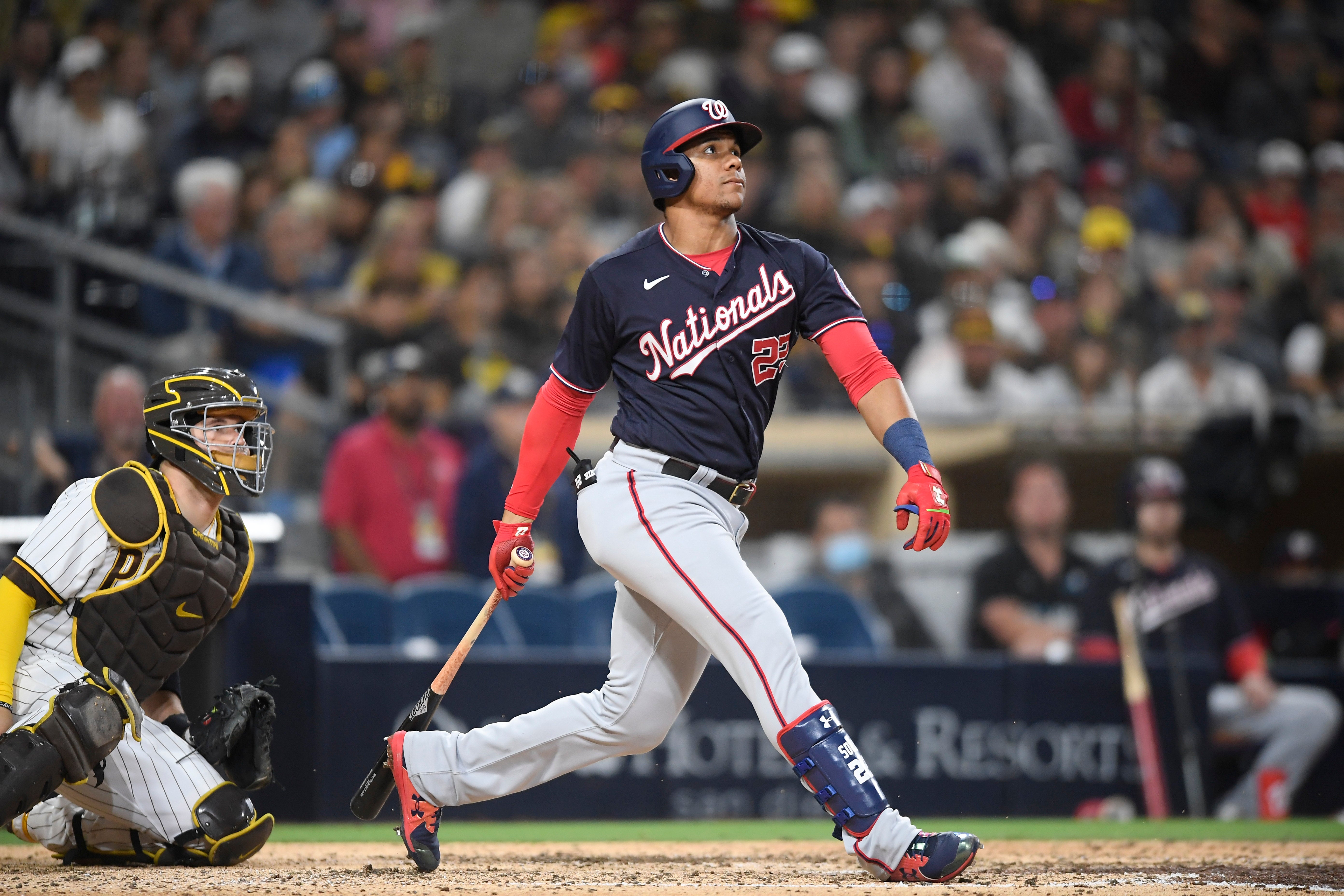 Denis Poroy. Getty Images.
Denis Poroy. Getty Images.The Nationals appear ready to trade Juan Soto before the trade deadline next week. All-Star position players who are under 25 don't get traded very often. And when they do, it typically has enormous impact. I thought it might be interesting to take a look back at some of the instances when this happened in the past and see not only what the return was in the trade but also what impact it had for the teams involved.
Here are eight examples of this happening:
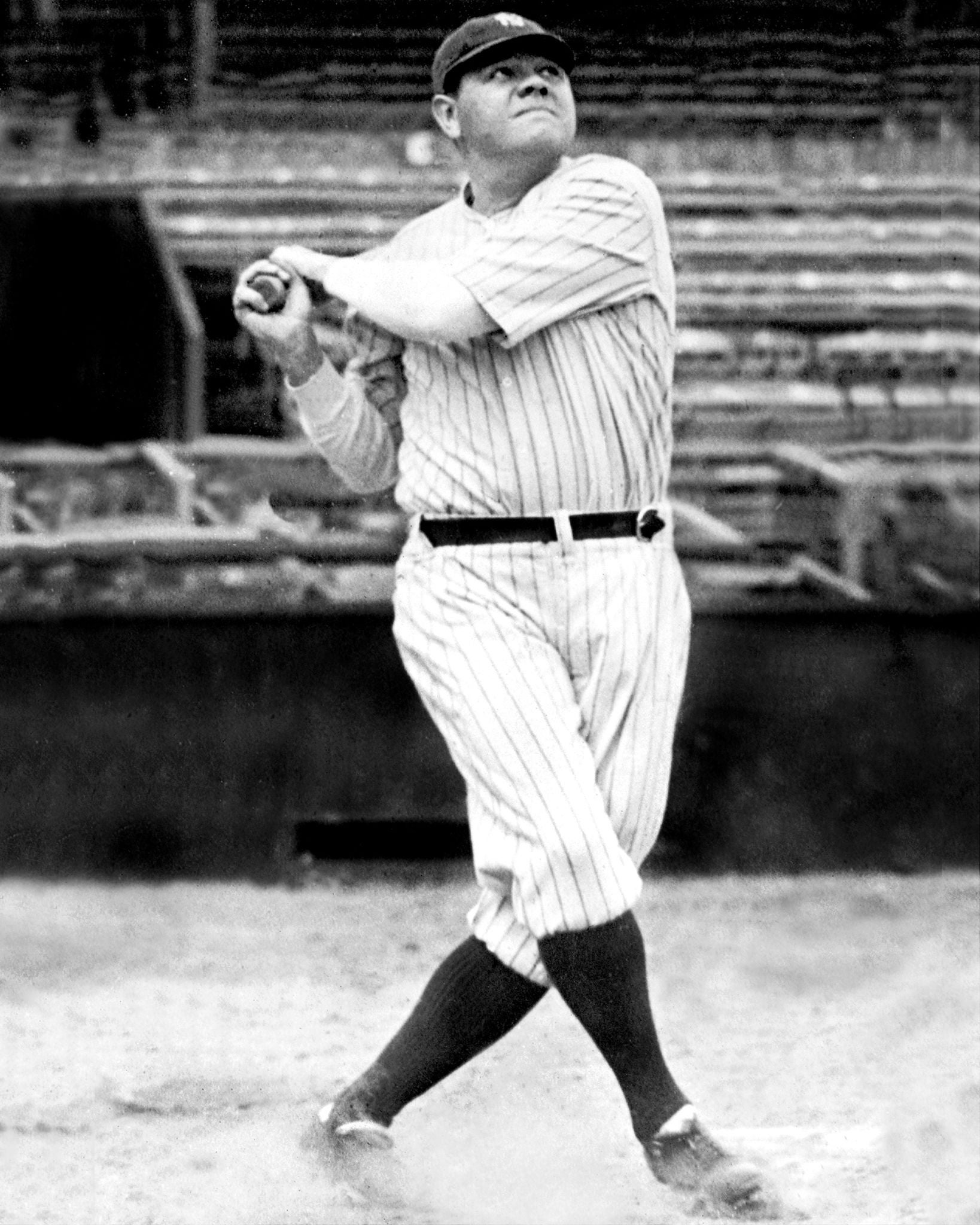 New York Daily News Archive. Getty Images.
New York Daily News Archive. Getty Images.Babe Ruth (age 24)
Traded from Boston Red Sox to New York Yankees for $100,000
December 26, 1919
Technically, Ruth wasn't an all-star when he was traded but that's only because the game hadn't been invented yet. He was only 24 but he had already led the league in home runs twice as well as once leading the league in RBI, Runs and even ERA.
This is the biggest trade in baseball history. The Yankees won four World Series with Ruth and it jumpstarted the greatest dynasty in baseball. The Red Sox wouldn't win another World Series for 86 years.
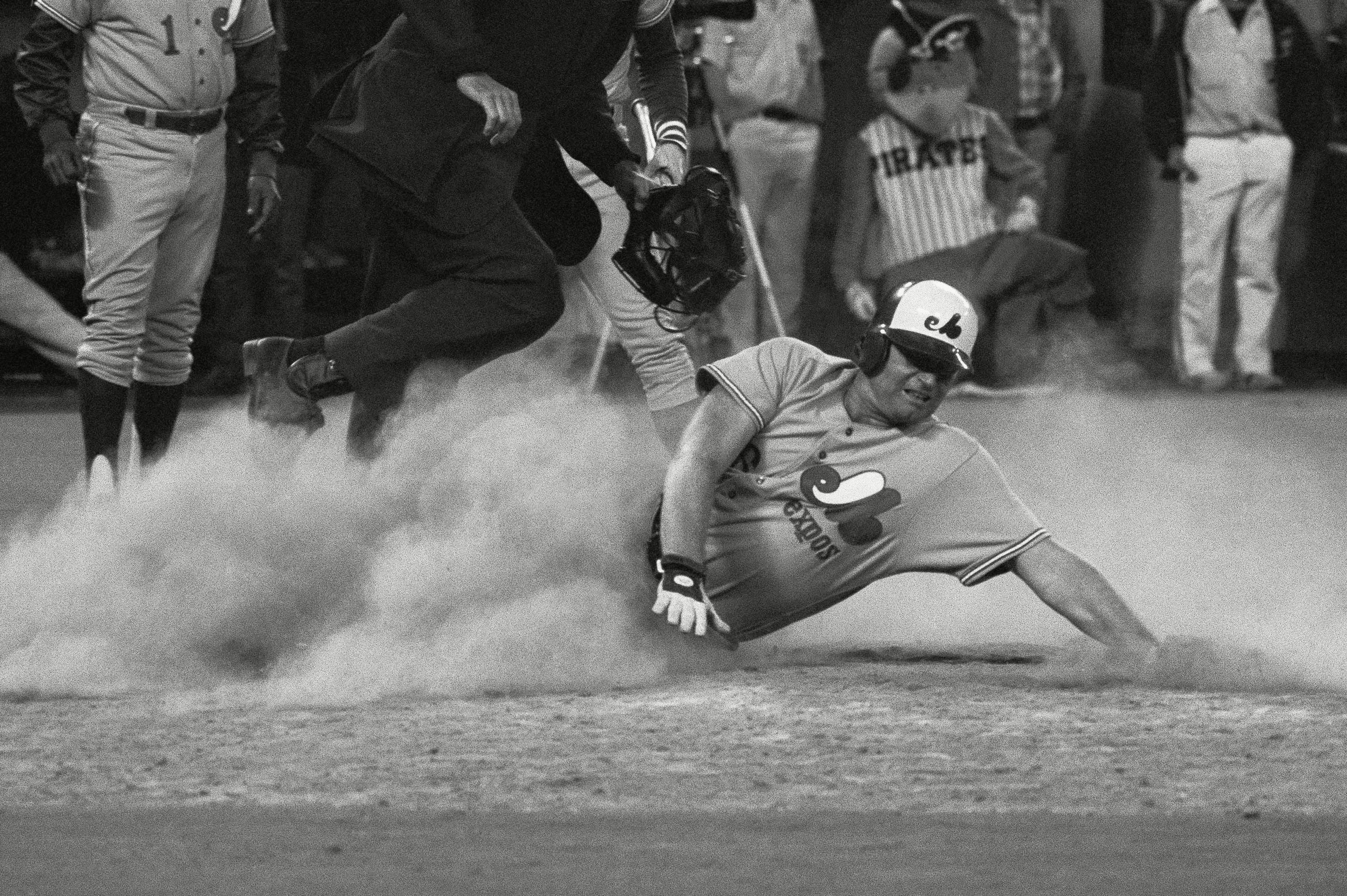 Charles Kenneth Lucas. Shutterstock Images.
Charles Kenneth Lucas. Shutterstock Images.Rusty Staub (age 24)
Traded by the Houston Astros to the Montreal Expos for Jesus Alou, Jack Bellingham, Skip Guinn and $100,000
January 22, 1969
The Montreal Expos were a brand new expansion team who had yet to play a major league game when they made this massive trade for Staub. After years in Houston of not hitting for power consistently, Staub instantly came into his own with Montreal and made the All-Star team each season he was there. He was the most popular player while he was with the Expos and was given the nickname Le Grande Orange because he was a huge man with bright red hair.
This was a trade that didn't really help either team though. The Expos were a struggling expansion team even with Staub there and averaged 96 losses a season in his time in Montreal. The Astros meanwhile were a team on the brink of contending but struggled with finding power hitters. Plus, none of the players they got back for Staub had much impact at all.
Rafael Palmeiro (age 23)
December 5, 1988
Traded by Chicago Cubs with Jamie Moyer and Drew Hall to the Texas Rangers for Mitch Williams, Steve Wilson, Paul Kilgus, Curt Wilkerson and two minor leaguers.
The Cubs realized that Palmeiro couldn't play left field (where they had been playing him to disastrous results) and they already had Mark Grace at first so they traded him. Which would make perfect sense but instead the Cubs traded away a 23 year old All-Star for spare parts.
In the Cubs defense, no one knew how good Jamie Moyer would become. He wound up going through St. Louis, Baltimore and Boston before his career took off in Seattle. And this trade did bring them enough to win the NL East in 1989 but then guys like Mitch Williams crashed back to earth in 1990 and the Cubs would be lousy again until 1998.
Roberto Alomar (age 22)
Traded by San Diego Padres with Joe Carter to the Toronto Blue Jays for Fred McGriff and Tony Fernandez
December 5, 1990
This was the biggest trade of the 1990's. Alomar became the best player on a Toronto team that won the 1992 and 1993 World Series. Carter hit the Series ending home run in 1993. Fernandez ended up back with the Blue Jays in 1993 as the starting shortstop for that playoff run. McGriff would later get traded to the Braves from the Padres and helped the Braves win the 1995 World Series.
And the Padres still haven't won a World Series in franchise history.
Gary Sheffield (age 24)
Traded by San Diego Padres to the Florida Marlins for Trevor Hoffman, Jose Martinez and Andres Berumen
June 24, 1993
This is our first trade so far that happened mid-season. It's also the one with the best return. As much fun as it would be to mock the Padres again, they wound up getting a Hall of Fame closer in this trade with Hoffman. Easily the greatest pitcher in San Diego Padre history, he saved 552 games for them.
You can't even say this was a bad trade for the Marlins. They were a new expansion team that season and this gave them a young star player to build around…and they did. They won the 1997 World Series with Sheffield in right field and he was a major contributor to that team. This trade would be the ideal for anyone involved in the Soto trade. It worked out for both teams.
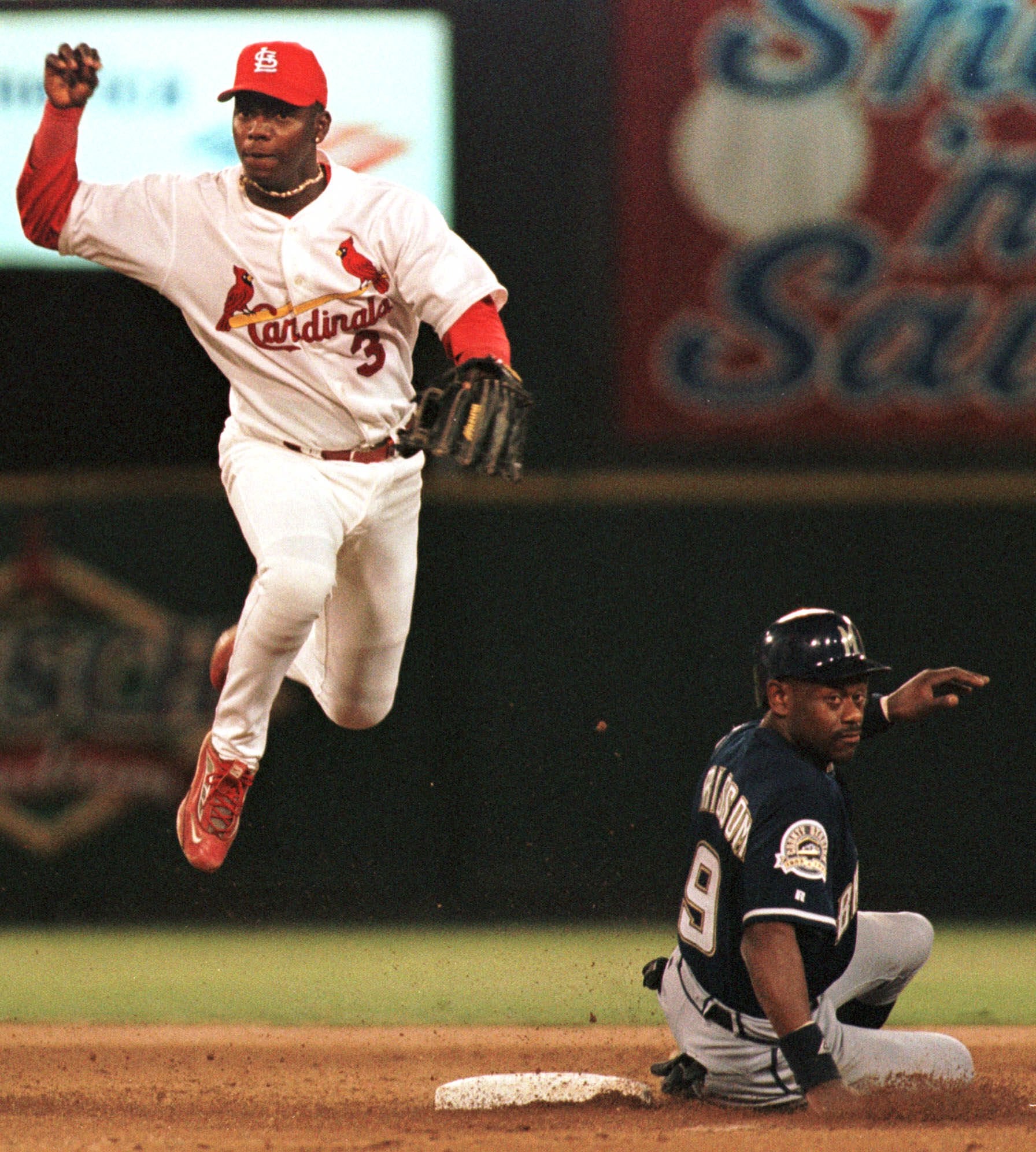 Tom Gannam. Shutterstock Images.
Tom Gannam. Shutterstock Images.Edgar Renteria (age 22)
Traded by the Florida Marlins to the St. Louis Cardinals for Braden Looper, Pablo Ozuna and Armando Almanza
December 14, 1998
After winning the 1997 World Series, the Marlins owner Wayne Huizenga ordered the team to slash payroll by more than half the the team was stripped down to spare parts before the 1998 season was over. They went 54-108 in 1998 and the last piece they moved was Renteria after that season.
Even though I think the Marlins should have gotten more in return for Renteria, I have a hard time calling this a terrible trade for them. Looper wound up being a very good reliever for the team and was closer for most of the 2003 season (when the Marlins won another World Series). Almanza was on that 2003 team as well and while he was ineffective by that point, he was still was a mediocre bullpen arm for them for five seasons.
Renteria certainly had a good career and helped the Cardinals get to the 2004 World Series but I still feel like he should have been better. He had nearly 2000 hits by the time he was 30 and was a 5-time All-Star. But he got old really fast and helping the 2010 Giants win the World Series was his last gasp.
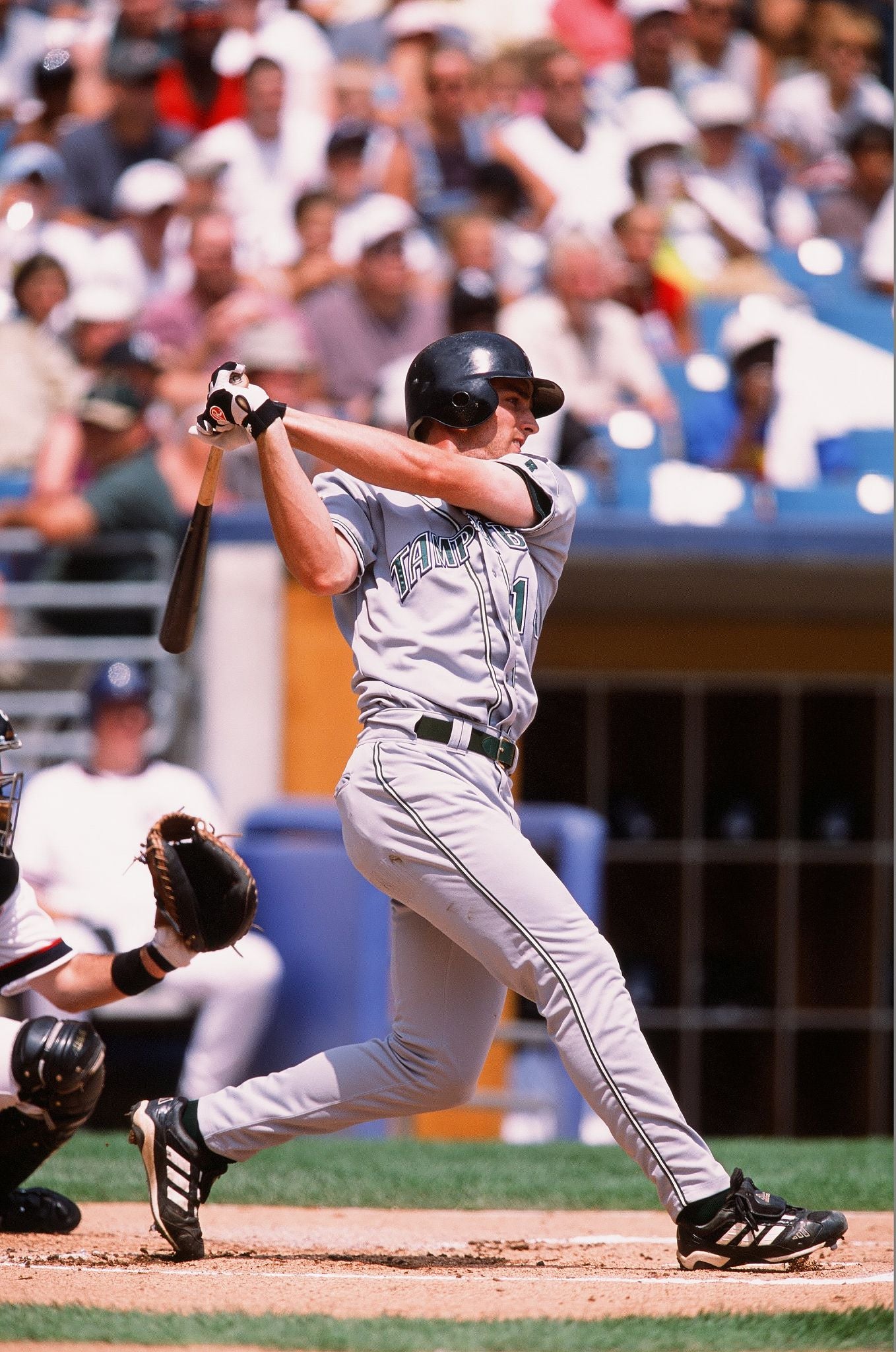 The Sporting News. Getty Images.
The Sporting News. Getty Images.Ben Grieve (age 24)
Traded by Oakland A's to Tampa Bay Devil Rays in massive 3-team deal. Trade also sent Roberto Hernandez from TB to KC, Johnny Damon and Mark Ellis from KC to Oakland, Cory Lidle from TB to Oakland and Angel Berroa and AJ Hinch from Oakland to KC
January 8, 2001
I feel bad for the Devil Rays with this one. This made sense on paper. 3rd year expansion team looking to get young slugger to build around. But the second Grieve got to Tampa, his power was sapped and he never hit 20 home runs in a season again. Grieve's defense was always horrible but they already had Greg Vaughn at DH so they were stuck with Grieve in the outfield every game. The 2001 Devil Rays wound up going 62-100 and the team wouldn't be competitive until 2008.
Huge win for Oakland as they got three pieces that helped them (Damon in 2001, Lidle in 2001-02 and Ellis in 2002, 03 and 06) win the AL West four times over the next six seasons.
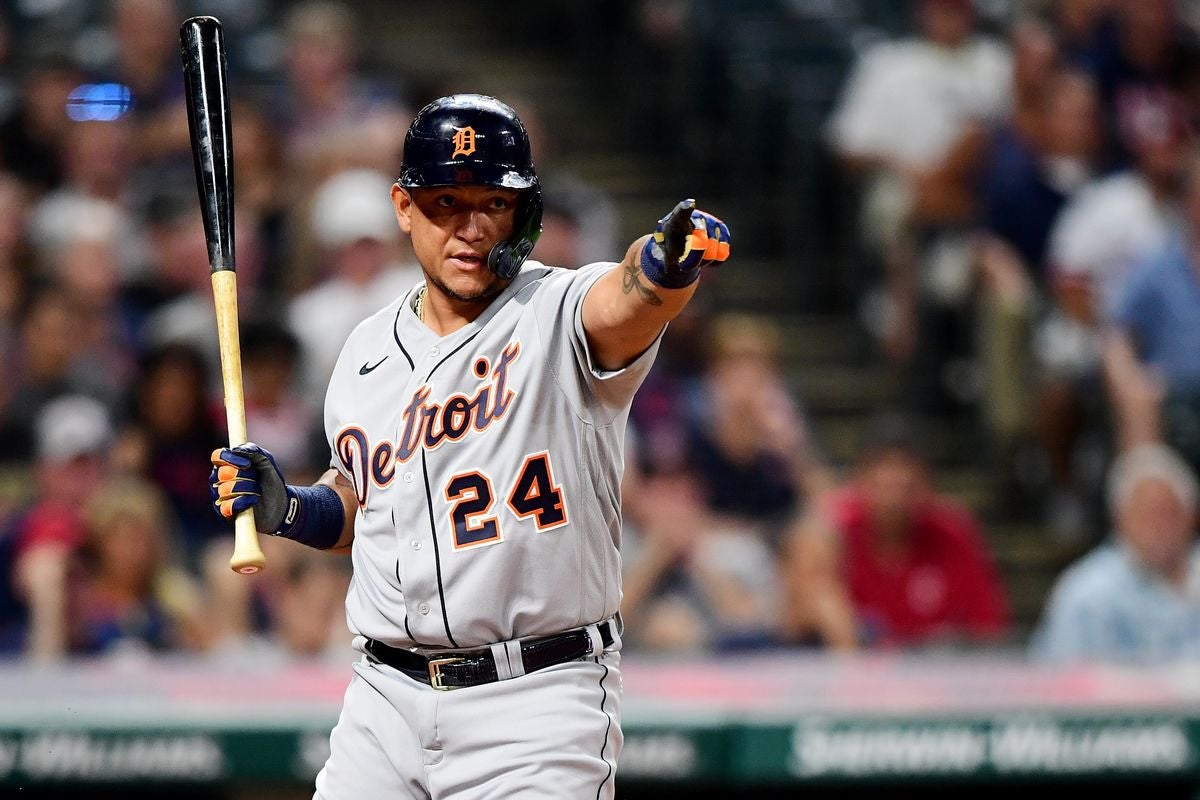
Miguel Cabrera (age 24)
Traded by Florida Marlins with Dontrelle Willis to the Detroit Tigers for Cameron Maybin, Andrew Miller, Burke Badenhop, Mike Rabelo, Frankie De La Cruz and a minor leaguer
December 4, 2007
The last example is the closest one to the Juan Soto situation. Ben Grieve and Edgar Renteria were good players but guys like Soto and Cabrera are generational talents. Both also won a World Series very early in their career with the team about to trade them. It's also slightly similar in that the Tigers got stuck with Dontrelle Willis and whoever gets Soto may wind up having to take the awful Patrick Corbin contract.
The Tigers obviously won this trade in a landslide but for as great as Cabrera has been, the Tigers only went to one World Series (2013) in the 15 seasons he's been in Detroit. In fact, they've only made it to the playoffs four times.
History has shown us that whatever team gets Juan Soto will likely win the trade. But only three of the eight examples led their team to a World Series win. One player can only do so much.


